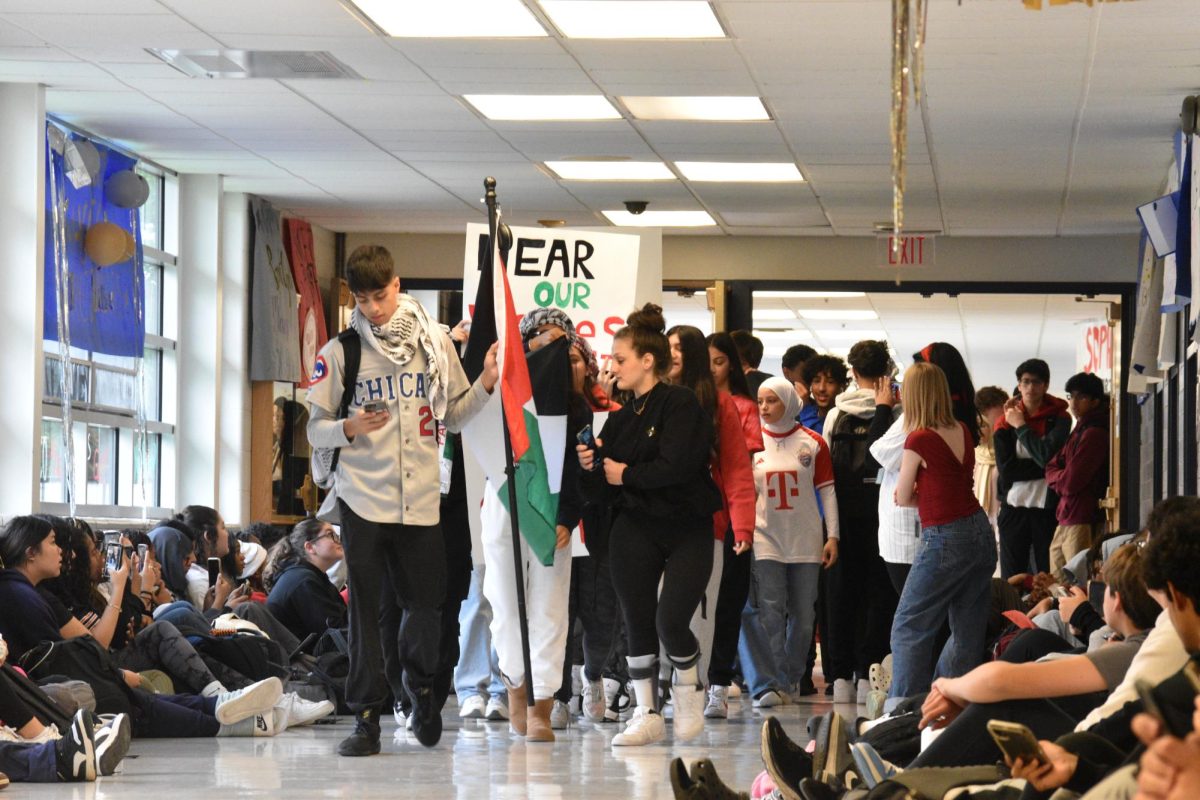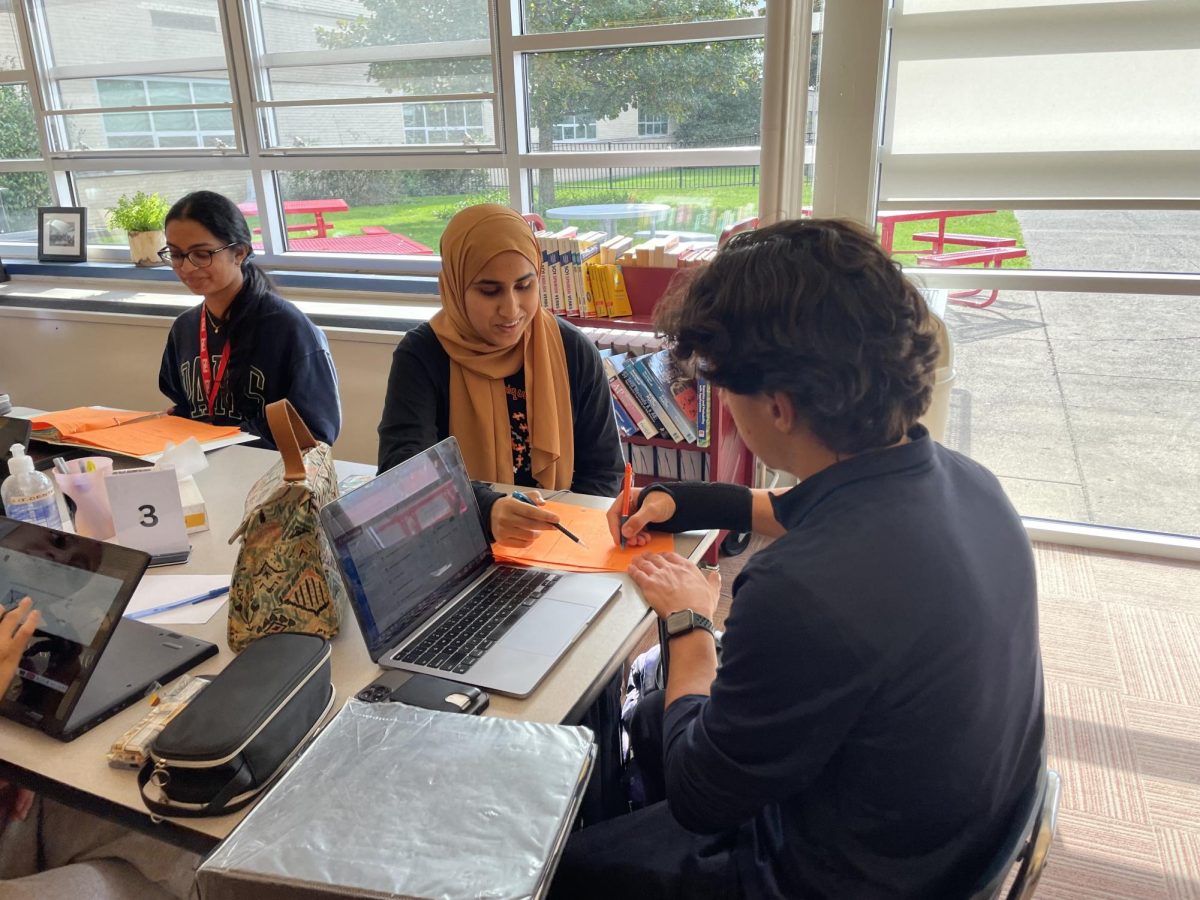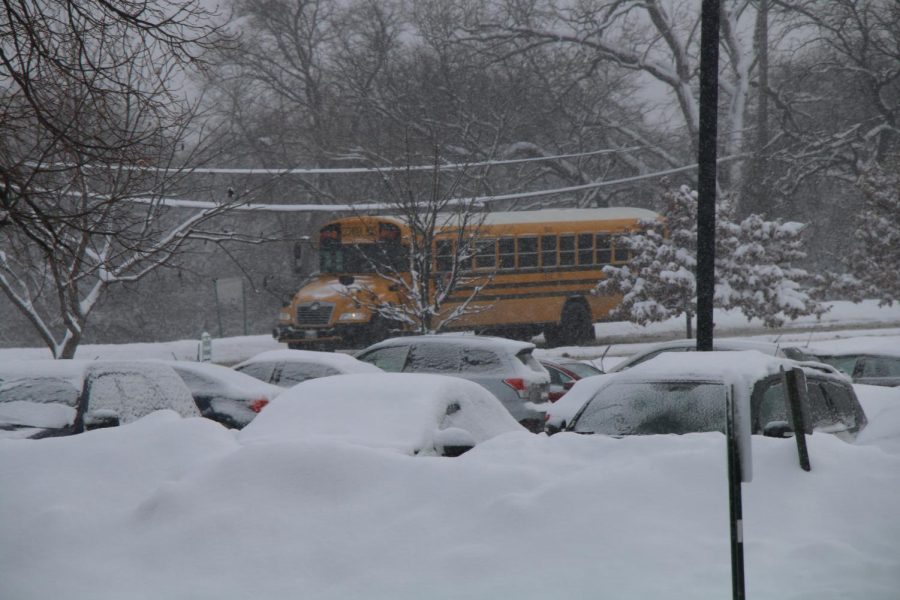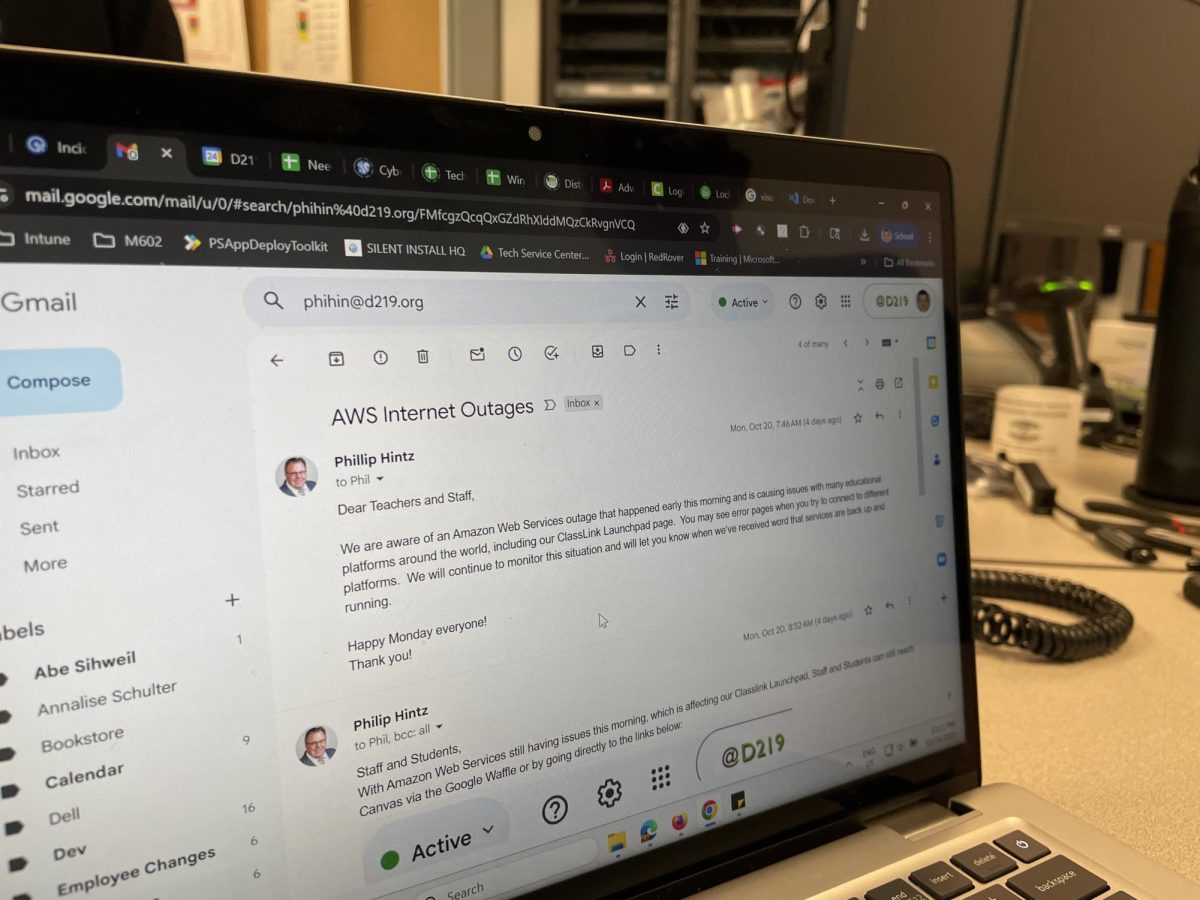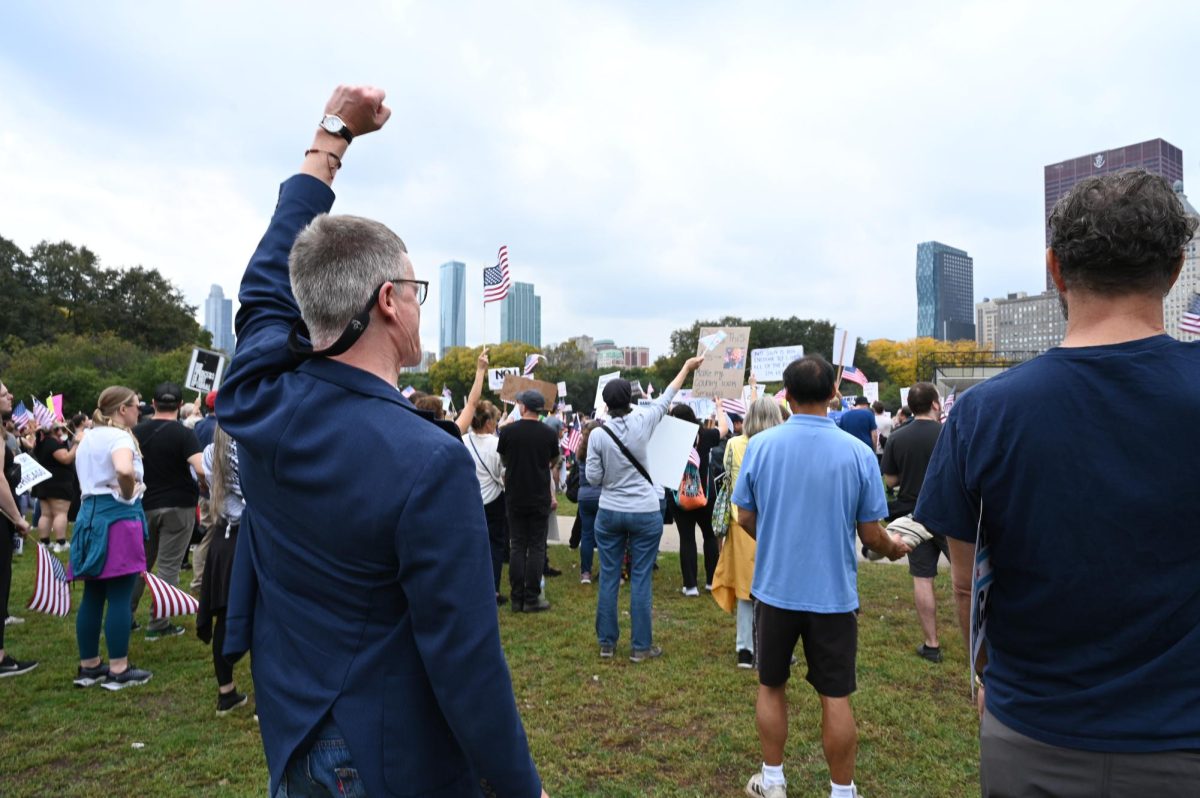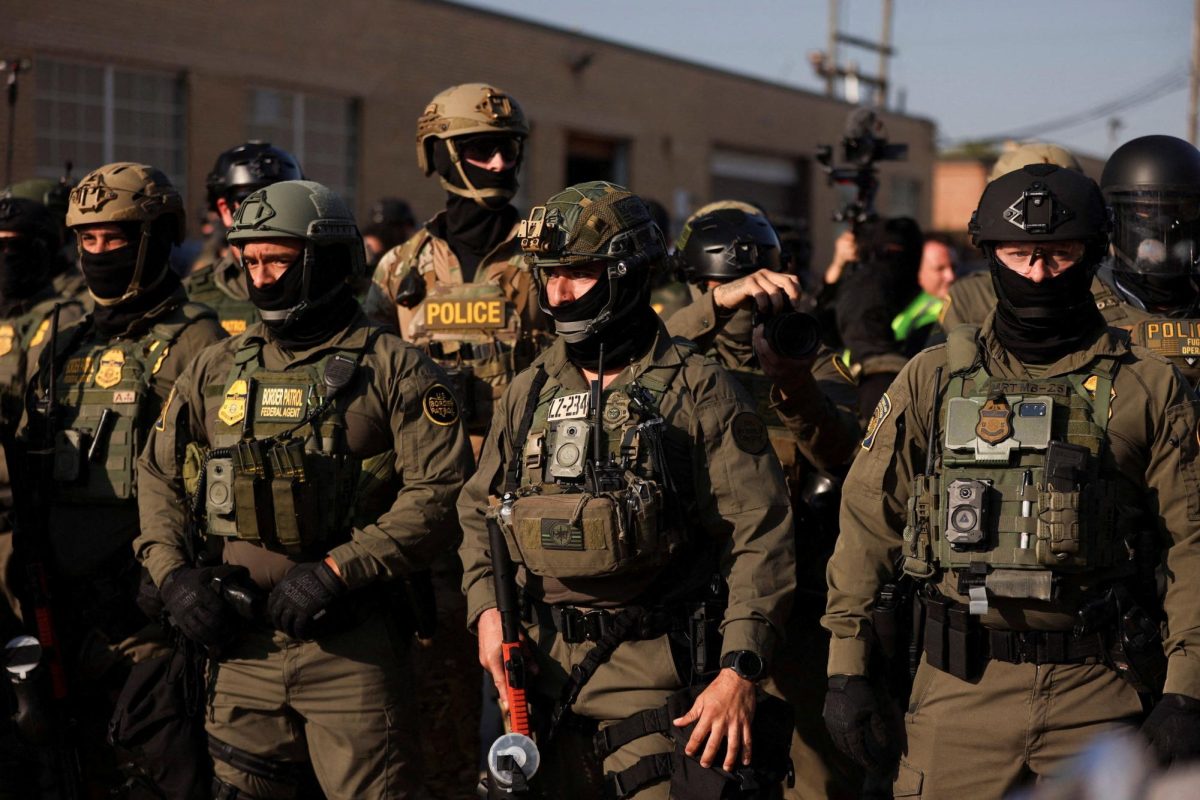A ceasefire deal was approved between Israel and Hamas Wednesday, Jan. 15, bringing an end to over 460 days of Israel’s bombardment of Gaza, which began after Oct. 7, 2023, when Hamas attacked cities in southern Israel, killing 1,139 people and taking 240 Israeli hostages. Since then, Israeli Defense Forces killed 47,771 Palestinians, with 70% of those being women and children, according to the Gaza Health Ministry. The majority of Israel’s victims were civilians (Al Jazeera).
The Oct. 7 attacks had an impact on students at Niles West with ties to the region, and leaders of student groups Middle Eastern and North African Club [MENA], Muslim Student Association [MSA] and Jewish Student Association [JSA] authored a joint statement of unity after superintendent Thomas Moore sent an email to address the attacks on Israel which drew criticism from MENA for failing to name Palestine. Students also organized a student sit-in on Oct. 19 protesting for a ceasefire.
The ceasefire deal, which took effect on Sunday, Jan. 19, after a three-hour delay, entails a six-week initial ceasefire and Israeli forces gradually leaving the Gaza Strip. Palestinian prisoners taken by Israel will also be released in exchange for Israeli hostages held by Hamas. Two days after the ceasefire went into effect, 137 bodies were been found in Rafah, Palestine according to the Palestinian Civil Defence (Al Jazeera).
MSA board member and junior Salwa Mohiuddin was relieved by the temporary halt in bloodshed but had concerns about whether Israel would hold up their end of the deal based on their past actions.
“Initially, I was relieved and happy that there would finally be peace in that region. My friends and I were talking about this and we have concerns over whether Israel will faithfully follow the terms of the ceasefire deal because historically, they haven’t honored the terms of peace agreements before, and since the ceasefire deal started being finalized on Wednesday, 82 people have been killed by Israeli attacks [as of Saturday according to the Gaza Health Ministry],” Mohiuddin said.
JSA president and junior Orli Eisenberg was also immediately relieved by the news of the ceasefire.
“When news of the ceasefire was announced, I felt an immediate wave of relief for the suffering the conflict has brought to so many. It also gave me a sense of hope for peace and safety in the future,” Eisenberg said.
Teachers also expressed excitement about the long-awaited news.
“When I got the news alert on my phone, I was in class, and I was thrilled to see that they [Israel and Hamas] had finally reached an agreement. There had just been a lot of suffering in that region, and hopefully, this can help bring some of that to an end,” AP World History teacher, Melanie Johnson, said.
English teacher and Dance Marathon sponsor Dena Lichterman was also glad for the ceasefire but felt cautious.
“At first, I was optimistic about the ceasefire when it was announced on the 15, but then the very next day, members of the Israeli cabinet did not ratify the deal, and 77 people in Gaza were killed [by Israeli airstrikes as of Thursday according to the Gaza Health Ministry], so I’m cautiously optimistic. So many people have suffered for over a year,” Lichterman said.
While the ceasefire deal is believed to be a step in the right direction, some student leaders and teachers believe that more steps need to be taken to reach a viable solution.
“The U.S. sends billions of dollars of military aid to Israel, and their support is a powerful force behind why the war is continuing, especially since Israel has become sort of an isolated country. If the U.S. were to stop giving that, I think it would send a powerful message and directly facilitate peace in the region. Much-needed aid to Palestine is also being hindered or blocked due to Israeli activists and military, so I think it’s really important to open up the region to humanitarian aid long-term,” Mohiuddin said.
Johnson similarly advocates for a long-lasting peace agreement solution.
“It was something that had to happen first in order for people to take the next necessary steps to help out and solve the humanitarian crisis that’s going on there. Give people housing and clothes and get people back into their homes. There’s a lot of stuff that’s going to have to be done, like rebuilding and a ceasefire is a temporary pause in fighting, which means that unless there are steps made for a longer-lasting peace agreement, my fears or concerns would be that we’ll be back in a position again where there is no ceasefire and there’s fighting again. So, hopefully, another thing that happens is some steps like that, not just a ceasefire but a more lasting, durable peace agreement,” Johnson said.


